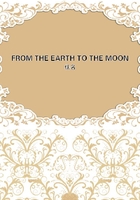
第69章
"Indeed," added Nicholl, "it would be easier for them than for us, for two reasons; first, because the attraction on the moon's surface is six times less than on that of the earth, which would allow a projectile to rise more easily; secondly, because it would be enough to send such a projectile only at 8,000 leagues instead of 80,000, which would require the force of projection to be ten times less strong.""Then," continued Michel, "I repeat it, why have they not done it?""And I repeat," said Barbicane; "who told you that they have not done it?""When?"
"Thousands of years before man appeared on earth.""And the projectile-- where is the projectile? I demand to see the projectile.""My friend," replied Barbicane, "the sea covers five-sixths of our globe. From that we may draw five good reasons for supposing that the lunar projectile, if ever launched, is now at the bottom of the Atlantic or the Pacific, unless it sped into some crevasse at that period when the crust of the earth was not yet hardened.""Old Barbicane," said Michel, "you have an answer for everything, and I bow before your wisdom. But there is one hypothesis that would suit me better than all the others, which is, the Selenites, being older than we, are wiser, and have not invented gunpowder."At this moment Diana joined in the conversation by a sonorous barking.
She was asking for her breakfast.
"Ah!" said Michel Ardan, "in our discussion we have forgotten Diana and Satellite."Immediately a good-sized pie was given to the dog, which devoured it hungrily.
"Do you see, Barbicane," said Michel, "we should have made a second Noah's ark of this projectile, and borne with us to the moon a couple of every kind of domestic animal.""I dare say; but room would have failed us."
"Oh!" said Michel, "we might have squeezed a little.""The fact is," replied Nicholl, "that cows, bulls, and horses, and all ruminants, would have been very useful on the lunar continent, but unfortunately the car could neither have been made a stable nor a shed.""Well, we might have at least brought a donkey, only a little donkey; that courageous beast which old Silenus loved to mount.
I love those old donkeys; they are the least favored animals in creation; they are not only beaten while alive, but even after they are dead.""How do you make that out?" asked Barbicane. "Why," said Michel, "they make their skins into drums."Barbicane and Nicholl could not help laughing at this ridiculous remark.
But a cry from their merry companion stopped them. The latter was leaning over the spot where Satellite lay. He rose, saying:
"My good Satellite is no longer ill."
"Ah!" said Nicholl.
"No," answered Michel, "he is dead! There," added he, in a piteous tone, "that is embarrassing. I much fear, my poor Diana, that you will leave no progeny in the lunar regions!"Indeed the unfortunate Satellite had not survived its wound.
It was quite dead. Michel Ardan looked at his friends with a rueful countenance.
"One question presents itself," said Barbicane. "We cannot keep the dead body of this dog with us for the next forty-eight hours.""No! certainly not," replied Nicholl; "but our scuttles are fixed on hinges; they can be let down. We will open one, and throw the body out into space."The president thought for some moments, and then said:
"Yes, we must do so, but at the same time taking very great precautions.""Why?" asked Michel.
"For two reasons which you will understand," answered Barbicane.
"The first relates to the air shut up in the projectile, and of which we must lose as little as possible.""But we manufacture the air?"
"Only in part. We make only the oxygen, my worthy Michel; and with regard to that, we must watch that the apparatus does not furnish the oxygen in too great a quantity; for an excess would bring us very serious physiological troubles. But if we make the oxygen, we do not make the azote, that medium which the lungs do not absorb, and which ought to remain intact; and that azote will escape rapidly through the open scuttles.""Oh! the time for throwing out poor Satellite?" said Michel.
"Agreed; but we must act quickly."
"And the second reason?" asked Michel.